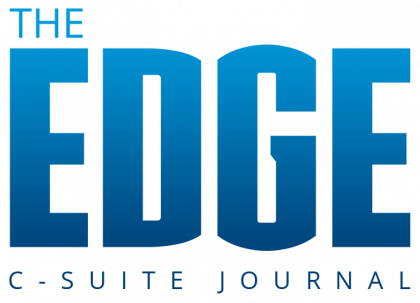PETRONAS
Engineers a Global Culture
An interview with Wan Zulkiflee Wan Ariffin, CEO and Group President of PETRONAS, and Tracy Skousen, Senior Partner and President International at Partners In Leadership
PETRONAS, a Malaysian oil and gas corporation, was founded in 1974 as a small, 15-person company with big dreams. Today, they have more than 48,100 employees (as of April 2020) with business presence in 80 countries and across multiple business lines, including accounting, engineering, retail, oil fieldwork, and beyond. While differences in location and job description abound, there’s one thing every PETRONAS employee has in common: a shared commitment to the PETRONAS company culture.
Accomplishing this unified culture wasn’t always easy. Within 30 days of Wan Zulkiflee Wan Ariffin being appointed CEO of PETRONAS in April 2015, oil prices had been plunging steadily for nearly a year. Wan Zulkiflee knew that to survive amidst this deteriorating market environment, his company would need both clear strategic direction and a cultural transformation to execute it.
Tracy Skousen: What’s the importance and impact of culture when a company is experiencing a massive downturn?
The upside of a crisis is that you are compelled to do whatever is necessary to ride out the tough times. This includes taking a hard look at your organizational culture. Is it one that helps you weather the storm, or does it need to be strengthened? Peter Drucker once said, “Culture eats strategy for breakfast.” For me, this speaks of the importance of culture to an organization. Culture plays a critical part in bringing strategy to life. It’s the foundation that sustains all of our change initiatives.
Every time there’s a necessary shift in strategy and performance, you analyze and evaluate what needs to change in the culture. Elaborate on how you elevated culture as a true strategic lever.
We have put a lot of time and effort into transforming our culture over the last five years. We started by introducing the PETRONAS Cultural Beliefs in 2015 to anchor and rally the company towards achieving our organizational goals. Our six cultural beliefs are:
Results Matter: I stretch my limits to deliver superior results.
Own It: I own the results and don’t blame others.
Focused Execution: I plan, commit, and deliver with discipline.
Nurture Trust: I always keep my promise and build mutual trust.
Tell Me: I seek, give, and act positively on feedback.
Shared Success: I collaborate for the greater good of PETRONAS.
These cultural beliefs were derived from how we wanted to experience the PETRONAS Shared Values—Loyalty, Integrity, Professionalism, and Cohesiveness—in our everyday work. In response, we have upskilled our workforce on culture change, introduced a common cultural language, and expanded awareness of the importance of a good corporate culture. We continue to work on deepening our efforts in this area.

As an engineering company, how do you balance technology, culture, and strategy for successful execution?
PETRONAS views technology as a differentiator that will keep us ahead of the curve in the oil and gas industry. Regardless of market conditions and price volatility, we continue to invest in technology to drive synergy, improve the customer experience, and bring greater value to the business overall.
In pursuing transformative change, culture determines our appetite for new technologies. The cultural mindset of our employees must be geared towards having the tenacity to push their limits, creatively problem-solve new challenges, and venture into new territories.
What is culture’s role in the execution of massive enterprise-wide initiatives, like the Pengerang Integrated Complex (PIC)?
Located in Johor, a state in southern Malaysia, the PIC is PETRONAS’ biggest downstream development to-date and one of the largest integrated petrochemical facilities in the region. The PIC is set to raise the game for Malaysia’s capacity and competitiveness within the Asia Pacific region. Approximately 6,303 acres of land were developed to complete the PIC, requiring collaboration with multiple parties (including partners, authorities, communities, etc.) and about 65,000 peoples of close to 60 nationalities on-site at the peak of construction period.
Needless to say, this was a large-scale, complex undertaking. A strong company culture built on trust, accountability, candid feedback, and the desire for shared success was crucial. To accomplish this, PETRONAS held Chief Executive Council (CEC) meetings for top leaders from each of the major development partners. We explained that the goal of these meetings was to help one another overcome individual hurdles that stood to stymie overall success. All of the leaders bought into this idea, and meetings were spent sharing unique challenges, seeking and providing focused feedback, and creatively problem-solving the issues at hand.
You mentioned focused feedback. Can you elaborate on why you feel this is significant to execution?
A good feedback culture is one that allows us to continuously acknowledge and celebrate the things that are going well, while simultaneously helping us catch our blind spots so that we can improve and grow. It empowers us to adjust how we work, interact, and communicate so that we can achieve better results.
We continue to embed feedback into our day-to-day operations. We seek feedback both before and after our town halls and internal staff engagement sessions, conduct periodic surveys to take the pulse of the organization on various issues, promote continuous conversation and feedback in our Employee Performance Management process, and organize team alignment sessions that leverage cross-functional feedback anchored in key results. Overall, we hope to create space for our team to be more engaged and invested in the transformation of their working environment.
In pursuing transformative change, culture determines our appetite for new technologies.
Building on that, can you explain how focused storytelling in a town hall setting inspires employees to take greater ownership for results?
At PETRONAS, we understand that company culture is rooted in the behaviors and actions our employees experience on a daily basis. When we highlight certain experiences through company-wide communications, we are essentially bringing into focus appropriate cultural behaviors and reinforcing them within the organization.
I am a firm believer in the strength of an informed workforce. The President’s Annual Address, my staff engagements in various locations, as well as frequent messages through other platforms, which began when I took on the role of President & Group CEO, and especially now with the current situation where we have triggered a ‘work from home’ arrangement, allow me to share my vision for the company and provide context for key business decisions.
But, perhaps most importantly, they serve as perfect opportunities for me to showcase examples of specific actions and behavior that have led to positive performance. When leaders regularly highlight stories of success, employees take notice and begin to adopt the cultural beliefs and behaviors needed to bring results to fruition.
PETRONAS has also been in acquisition mode. What role does culture play in these acquisitions?
We focused on building a more resilient and prepared organization over the last few years. To achieve this, we developed a three-pronged growth strategy focusing on maximizing our cash generators, expanding our core business, and exploring new opportunities in specialty chemicals and new energy. We have also taken the company on a culture change journey.
Culture determines our resilience and the resolute execution of our strategies. As we work to deliver our growth strategy to bring us closer to our Statement of Purpose—to become a progressive energy and solutions partner enriching lives for a sustainable future—everyone within the organization must remain committed to the PETRONAS Shared Values and Cultural Beliefs.
The Mercedes-AMG PETRONAS Formula One team won six consecutive constructors’ championships in 2019. What role does organizational culture play in this?
PETRONAS has been the Title Sponsor of the Mercedes-AMG PETRONAS Motorsport team for the past ten years. We also play a crucial role as a Technical Partner, working closely with the team to continuously improve on the Winning Formula and deliver the ultimate performance on and off the race tracks. Our Fluid Technology Solutions™ (fuels, lubricants, and functional fluids) were developed alongside the team’s engines, and powered the Silver Arrows to win six consecutive World Constructors’ Championships from 2014-2019.
In F1, each racing team must collaborate efficiently, with great precision and attention to detail to ensure the drivers and cars become the first to cross the finish line. At the same time, the technical teams supporting them are constantly innovating and testing new ideas in engine design, function, and aerodynamics to ensure they are always ahead of the competition.
This is the winning spirit that transcends beyond motorsports and can be applied in any organizational environment. It speaks of the ability of teams to rally together, focus on their planning and execution, and relentlessly test the limits of their performance to achieve shared success.

What does the future hold for PETRONAS?
Looking at the current situation, as well as beyond the horizon, there are many challenges for PETRONAS to address. The current COVID-19 pandemic and oil prices war, which has led to a global crash in demand and supply, requires us to strengthen our view on the importance of portfolio resilience. Global climate change has already resulted in a wide range of impacts across every region of the country and many sectors of the economy. VUCA are also going to become more and more prevalent in the business world. Technological advancement and innovation will continue to be a key differentiator for businesses. This is where a strong culture plays an important role in our organization, which I believe we have laid the right foundation to address the challenges.
All of these require us to remain agile and continue our efforts to strengthen the organization. In this regard, our new Statement of Purpose allows us to anchor our goals and aspirations while retaining the core ideals that brought us to where we are today. Our three-pronged growth strategy sets the course for us as a business, bringing us closer to achieving our purpose. We continue to deepen our culture change efforts to better prepare our workforce for the challenges of the future.
All of us at PETRONAS must take on greater accountability for the company moving forward. We each have the opportunity to challenge ourselves and grow to our fullest potential, benefiting PETRONAS as a whole.
MORE ABOUT PETRONAS

PETRONAS’ transformation journey:
www.petronas.com/about-us/milestones

Delivering Energy Responsibly:
www.petronas.com/sustainability

Empowering Social Change:
www.petronas.com/about-us/yayasan-petronas

Tracy Skousen
Tracy O. Skousen is Senior Partner, Author, President International Division, and the SVP of the Accountability Business Unit.
> View bio





